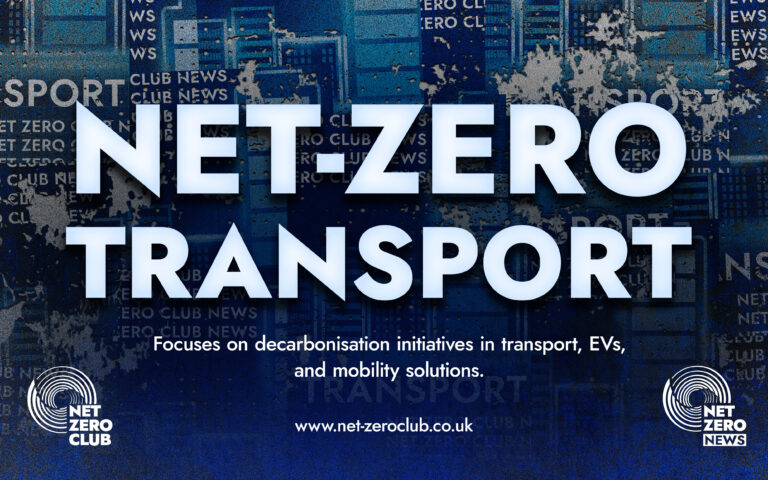ScotCharge: Leading Fleet Electrification Companies Unite

Welcome, Net Zero News readers,
In an exciting development for Scotland’s transport landscape, three of the UK’s leading fleet electrification companies have united to form ScotCharge—a pioneering consortium dedicated to the decarbonisation of the heavy goods vehicle (HGV) sector. This strategic alliance is poised to make a significant impact, steering the nation towards a more sustainable and environmentally friendly future.
Backed by Transport Scotland and its £2 million HGV Market Readiness Fund, the consortium includes Fleete, VEV, and Dynamon. Together, they aim to craft a comprehensive roadmap for electrifying Scotland’s 36,500-strong HGV fleet, marking a bold step towards achieving net zero emissions by 2045.
The ScotCharge initiative aspires to create an investment-ready plan designed to guide fleet operators on a “smooth path to full electrification.” This ambitious undertaking is not limited to just the founding members; it also boasts the involvement of approximately 50 stakeholders from Scotland’s transport ecosystem. This diverse group includes fleet operators, vehicle manufacturers, and independent distribution network operators, all coming together to forge a sustainable future for Scotland’s HGV sector.
The development of the initial business case is set to be completed by December 2025, with a comprehensive report expected by March next year. Central to this initiative are key elements such as fleet data analysis led by Dynamon, hub infrastructure development from Fleete, and depot electrification services provided by VEV. Collectively, these components will create a robust framework for the future of HGVs in Scotland.
HGVs currently account for 12% of transport emissions in Scotland, making their decarbonisation a vital priority for the Scottish Government. The commitment to reducing these emissions is a crucial component of the broader strategy to achieve net zero by 2045, a goal that necessitates immediate and concerted action across all sectors.
Amber Jamieson, HGV Decarbonisation Team Leader at Transport Scotland, expressed enthusiasm about the initiative, stating: “The HGV Market Readiness Fund is enabling operators, manufacturers, financiers, and charge point providers to collaborate on innovative projects that drive investment in HGV decarbonisation. The response from the sector has been strong, with high-quality consortium projects proposed.”
Jamieson continued, “These business cases will help identify opportunities to leverage private investment alongside public funding, accelerating the transition to zero-emission HGV fleets and supporting infrastructure across Scotland.” This collaborative approach is essential for creating a sustainable ecosystem that benefits all stakeholders involved.
Marcelo Soares, Vice President of Customer and Partnerships for VEV, shared his excitement regarding the initiative, stating: “We’re excited to be building a robust funding model and investment-ready plan that will kickstart the adoption of electric HGVs and the deployment of critical charging infrastructure across Scotland. From the smallest of Scottish businesses to the largest multinationals, we’re committed to helping operators build their strategies for a future fleet that is dependable, scalable and supports both operations and wider business goals.”
Angus Webb, CEO of Dynamon, highlighted the data-driven approach that ScotCharge brings to fleet electrification: “ScotCharge brings a data-driven approach to fleet electrification, from data to depots. Using our ZERO software, we’ll analyse vehicle movements, duty cycles, and energy demand to identify the most effective pathways for electric HGV adoption. This collaboration will give fleets the clarity they need to plan infrastructure and investment with confidence.”
Moreover, Benjamin Dovey, UK Sales Director at Fleete Group, noted the benefits of shared charging hubs: “Shared charging hubs provide convenient, low-cost charging for fleets of all sizes at key strategic locations as Scotland transitions to zero-emission HGVs. As we’ve shown at the Port of Tilbury, shared charging hubs will maximise the return on government funding from the Scottish Government, crowding in private investment.”
As we look ahead, the ScotCharge consortium represents a crucial step towards transforming Scotland’s HGV sector into a more sustainable and efficient system. The collaborative efforts of these industry leaders, combined with the support from Transport Scotland, will undoubtedly pave the way for a cleaner and greener future for heavy goods transport in Scotland.
In conclusion, the formation of ScotCharge is a testament to the power of collaboration and innovation in the fight against climate change. By bringing together various stakeholders within the transport ecosystem, the consortium is not only addressing the immediate challenges of HGV decarbonisation but also setting a precedent for future initiatives aimed at achieving net zero emissions. The journey towards a sustainable future is indeed underway, and with continued support and investment, Scotland is poised to lead the charge in the electrification of its transport sector.
Stay tuned with us at Net Zero News as we continue to cover the progress of this vital initiative and highlight the ongoing efforts to create a sustainable, net zero future for all.

 Got net-zero news, project updates, or product launches to share?
Got net-zero news, project updates, or product launches to share? 



